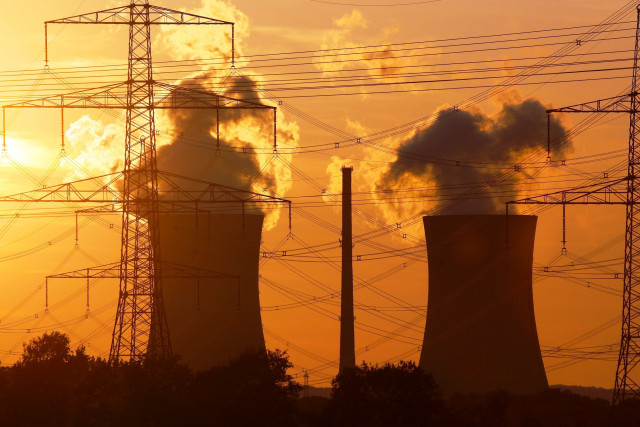July-May: Rs48b spent on Karachi’s nuclear power plants
Money came through China; plants have generation capacity of 2,117MW.

Pakistan has taken IMF into confidence about the revised accounting treatment of spending on K2 and K3 and Rs48 billion spending is now excluded from outgoing fiscal year’s Rs525 billion PSDP.
Despite all difficulties, Pakistan is steadily continuing its nuclear energy programme with the help of China. The country has spent Rs48 billion during the last year on two Karachi nuclear power plants that have a combined generation capacity of 2,117 megawatts.
From July through May of the outgoing fiscal year, China extended loans amounting to $477.3 million or Rs48 billion for the two nuclear power plants, K2 and K3, according to the Economic Affairs Division (EAD). The money has been given to Chinese suppliers of the power plants.
The total cost of these two power plants is $9.5 billion including the $6.5-billion foreign financing component. The projects were planned during the tenure of Pakistan Peoples’ Party but were approved by the PML-N government in July 2013.
China and Pakistan signed loan agreements for both power plants early last year. Officials said both sides have also agreed to modify the agreements to change the borrower from government of Pakistan to Pakistan Atomic Energy Commission (PAEC).
Read: Nuclear power plants: ‘Production to be raised to 40,000MW by 2050’
However, the federal government will be the guarantor and responsible to return the loans. The modifications have been introduced aimed at keeping the huge spending outside budgetary books.
Had the government booked the expenses on nuclear power plants on the budget, it would have been impossible for it to keep the budget deficit around 5% of Gross Domestic Product in the outgoing fiscal year, ending on June 30.
The issue of treatment of spending on Karachi nuclear power plants remained unresolved during last year. The Ministry of Finance was reluctant to book $9.5 billion spending on its books.
To resolve the issue, many back and forth meetings were held between Finance Minister Ishaq Dar, Director General Strategic Plans Division and the PAEC.
Sources said Pakistan has also taken International Monetary Fund (IMF) into confidence about the revised accounting treatment of spending on K2 and K3. The Rs48-billion spending is now excluded from the outgoing fiscal year’s Rs525-billion Public Sector Development Programme.
According to the Ministry of Finance’s budgetary books, for the outgoing fiscal year, the government has estimated receiving Rs87.7 billion loan from China for both the nuclear power plants. The PAEC, which is handling the nuclear power plants, has sent a fresh withdrawal request to the Chinese authorities. The authorities are anticipating that the remaining Rs39.7 billion will be received from China before June-end.
Read: Nuclear power plants: Can't give a year to review report, says SEPA director
For the new fiscal year, beginning from July, the government has estimated receiving Rs121 billion loans for both nuclear power plants from China. The authorities are planning to complete both projects by 2024 aimed at meeting the growing energy needs of the country.
At present, Pakistan is generating only 665MW of electricity from nuclear sources. The government has estimated that another 340MW will be added to the national grid by next year, as Chashma-III nuclear power plant is nearing completion.
The Chashma-IV, also having 340MW generation capacity, is expected to be completed by 2017. In total, 2,880MW nuclear power plants are at various stages of completion.
Last year, PAEC Chairman Ansar Parvez, had briefed the media about his agency’s plan to progress the country’s peaceful civil nuclear programme for meeting the energy requirements. He had said that despite facing various kinds of embargoes, the authorities have planned to install 42,000MW through nuclear power plants till 2050.
Published in The Express Tribune, June 28th, 2015.
Like Business on Facebook, follow @TribuneBiz on Twitter to stay informed and join in the conversation.



















COMMENTS
Comments are moderated and generally will be posted if they are on-topic and not abusive.
For more information, please see our Comments FAQ